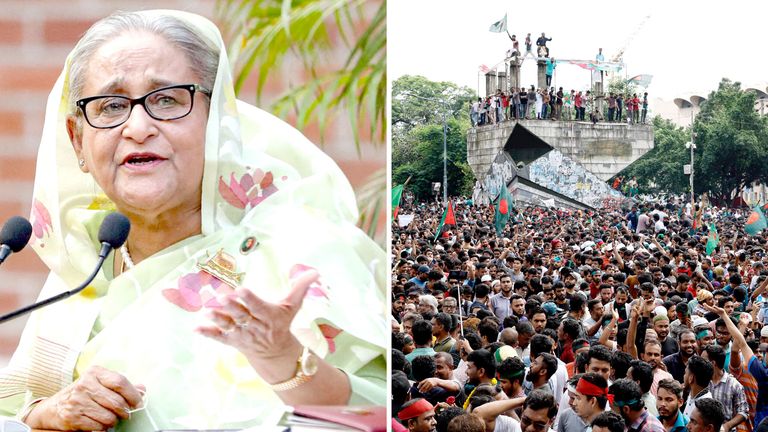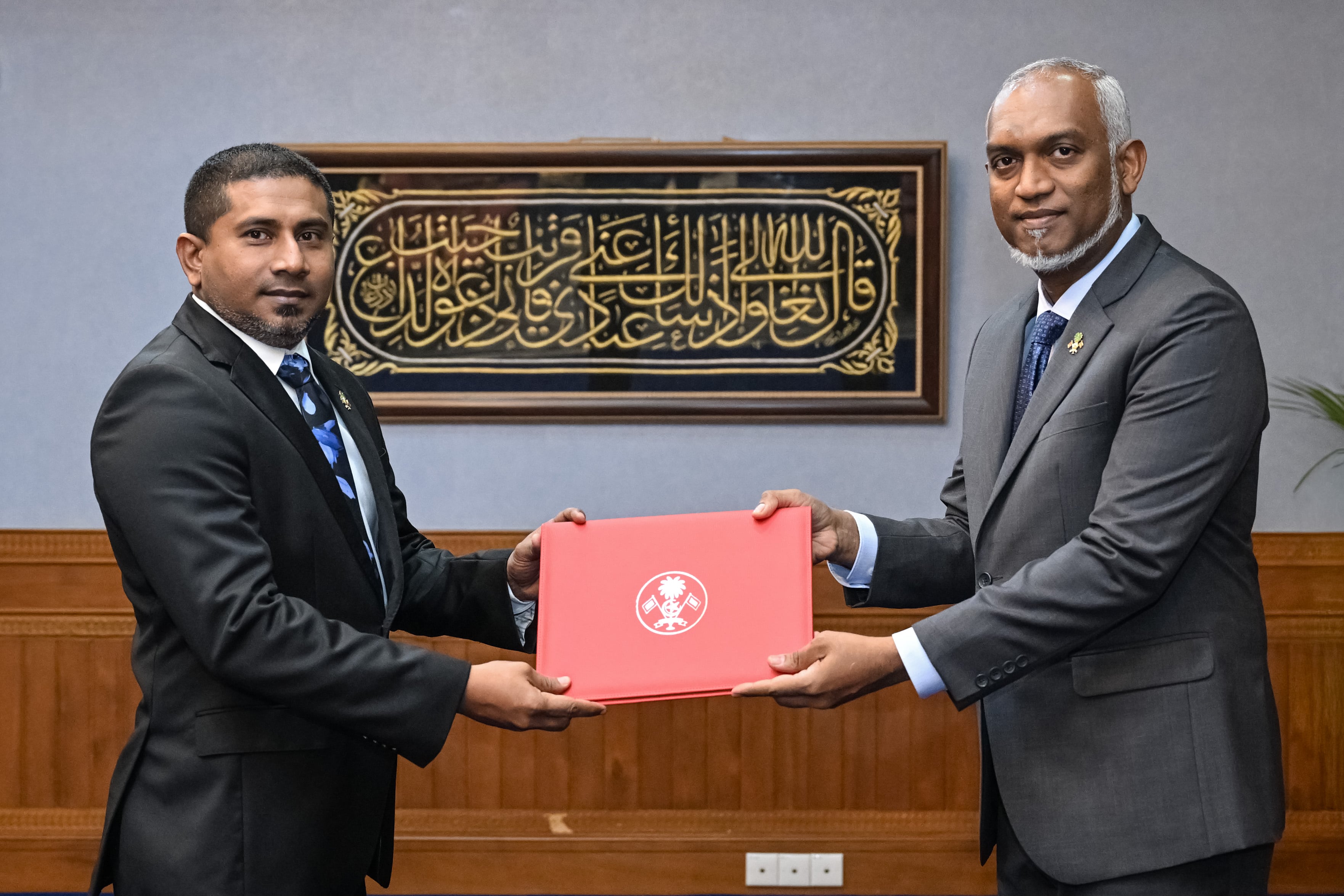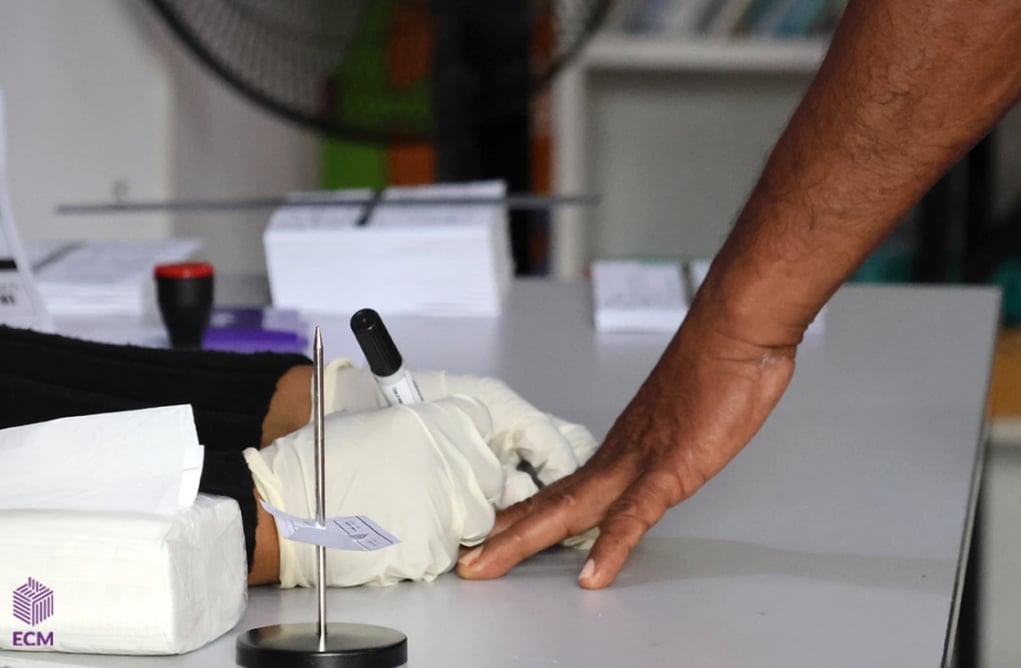In a dramatic turn of events, Bangladesh's Prime Minister Sheikh Hasina has resigned and fled the country, following weeks of violent demonstrations that claimed nearly 300 lives. The political turmoil in Dhaka saw massive crowds defying a national curfew to storm Hasina’s palace, forcing her to board a military helicopter and flee to India. This development has led to the formation of an interim government under the auspices of the army, which is now tasked with restoring order and navigating the nation through this crisis.
Army Chief General Waker-Uz-Zaman addressed the nation on Monday, announcing the establishment of the interim government and calling for calm. His speech aimed to alleviate tensions and reassure the public that the military would act to maintain peace and address the chaos that has unfolded. Reports indicate that Hasina's departure has momentarily diffused the intense situation in Dhaka, where further bloodshed had been anticipated.
As Hasina boarded a Bangladesh Air Force aircraft that reportedly landed at Hindon Air Base near New Delhi, India, the unrest continued in Dhaka. Protesters, who had previously been met with violent crackdowns by the authorities, surged into the prime minister’s residence, looting and causing significant damage. Despite a nationwide curfew and heavy police presence, the demonstrators’ advance was unstoppable, leading to a night of intense violence that saw at least 20 more fatalities.
Amid the chaos, the mood on the streets shifted from one of fear to celebration following news of Hasina's exit. Jubilant crowds took to the streets, celebrating the end of her rule by waving flags, dancing, and breaking into the prime minister's compound. These scenes of jubilation reflect widespread public relief and a collective hope for a new political direction.
International observers, including UN Special Rapporteur Irene Khan, have expressed concern about the future stability of Bangladesh. Khan emphasized the need for accountability and respect for human rights during the transition period. Meanwhile, Crisis Group’s Thomas Kean has highlighted the opportunity the current crisis presents to rebuild Bangladesh’s democracy, moving away from the divisive politics that have plagued the country in recent decades.
Protests began a month ago over a controversial job quota scheme, which saw universities closed and severe restrictions imposed by the government. Despite a court ruling to scale back the quotas, the movement evolved into a broader call for Hasina’s resignation and accountability for the violence. With the interim government now in place, the focus will be on restoring democratic processes and addressing the deep-seated issues that have driven the country to the brink.
Army Chief General Waker-Uz-Zaman addressed the nation on Monday, announcing the establishment of the interim government and calling for calm. His speech aimed to alleviate tensions and reassure the public that the military would act to maintain peace and address the chaos that has unfolded. Reports indicate that Hasina's departure has momentarily diffused the intense situation in Dhaka, where further bloodshed had been anticipated.
As Hasina boarded a Bangladesh Air Force aircraft that reportedly landed at Hindon Air Base near New Delhi, India, the unrest continued in Dhaka. Protesters, who had previously been met with violent crackdowns by the authorities, surged into the prime minister’s residence, looting and causing significant damage. Despite a nationwide curfew and heavy police presence, the demonstrators’ advance was unstoppable, leading to a night of intense violence that saw at least 20 more fatalities.
Amid the chaos, the mood on the streets shifted from one of fear to celebration following news of Hasina's exit. Jubilant crowds took to the streets, celebrating the end of her rule by waving flags, dancing, and breaking into the prime minister's compound. These scenes of jubilation reflect widespread public relief and a collective hope for a new political direction.
International observers, including UN Special Rapporteur Irene Khan, have expressed concern about the future stability of Bangladesh. Khan emphasized the need for accountability and respect for human rights during the transition period. Meanwhile, Crisis Group’s Thomas Kean has highlighted the opportunity the current crisis presents to rebuild Bangladesh’s democracy, moving away from the divisive politics that have plagued the country in recent decades.
Protests began a month ago over a controversial job quota scheme, which saw universities closed and severe restrictions imposed by the government. Despite a court ruling to scale back the quotas, the movement evolved into a broader call for Hasina’s resignation and accountability for the violence. With the interim government now in place, the focus will be on restoring democratic processes and addressing the deep-seated issues that have driven the country to the brink.


















